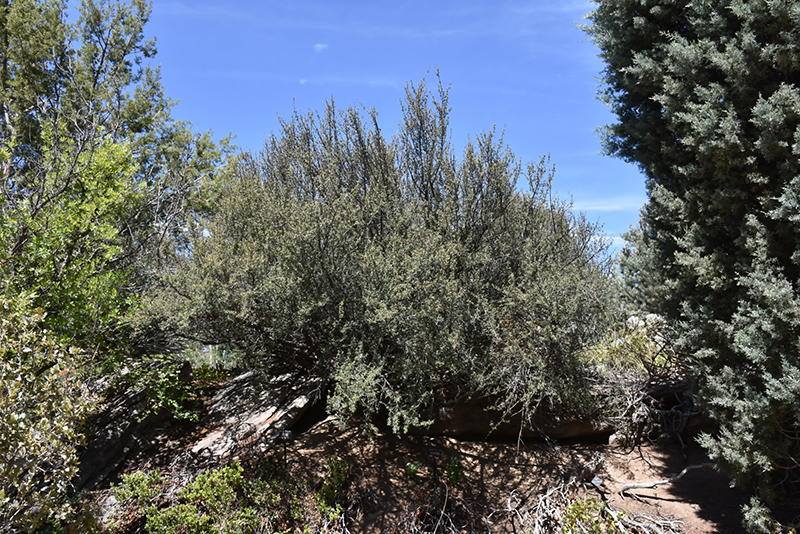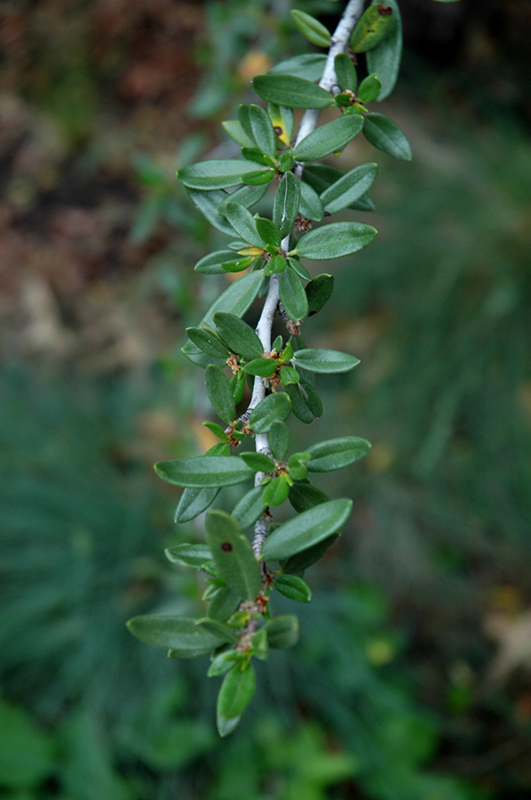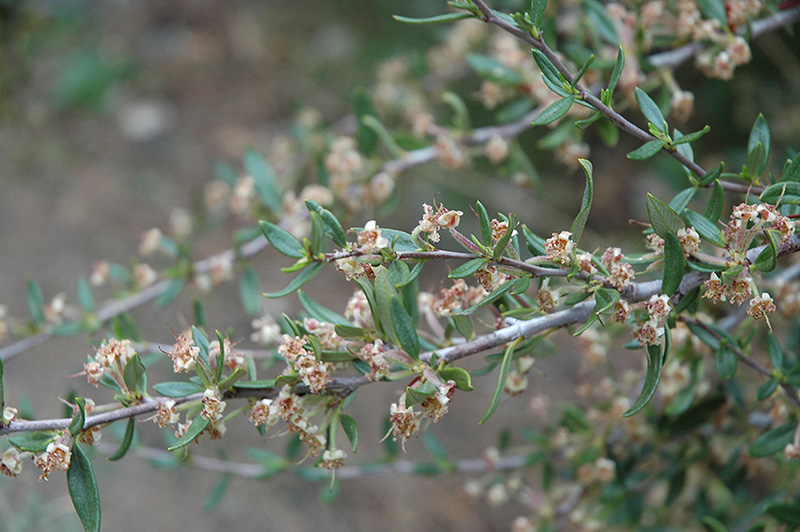Height: 30 feet
Spread: 30 feet
Sunlight:
![]()
Hardiness Zone: 4a
Other Names: Curl Leaf Mountain Mahogany
Description:
An evergreen shrub or small tree that is great as an accent plant or screen; an attractive plant for dry situations; leathery dark green leaves with white undersides contrast the silvery white bark; can be shaped for bonsai or topiary
Ornamental Features
Mountain Mahogany has attractive dark green foliage with white undersides on a tree with a round habit of growth. The glossy pointy leaves are highly ornamental and remain dark green throughout the winter.
Landscape Attributes
Mountain Mahogany is a multi-stemmed evergreen tree with a more or less rounded form. Its average texture blends into the landscape, but can be balanced by one or two finer or coarser trees or shrubs for an effective composition.
This is a relatively low maintenance tree, and can be pruned at anytime. Deer don't particularly care for this plant and will usually leave it alone in favor of tastier treats. It has no significant negative characteristics.
Mountain Mahogany is recommended for the following landscape applications;
- Accent
- Hedges/Screening
- Windbreaks and Shelterbelts
Planting & Growing
Mountain Mahogany will grow to be about 30 feet tall at maturity, with a spread of 30 feet. It has a low canopy with a typical clearance of 1 foot from the ground, and is suitable for planting under power lines. It grows at a slow rate, and under ideal conditions can be expected to live to a ripe old age of 400 years or more; think of this as a heritage tree for future generations!
This tree should only be grown in full sunlight. It is very adaptable to both dry and moist locations, and should do just fine under average home landscape conditions. It is considered to be drought-tolerant, and thus makes an ideal choice for xeriscaping or the moisture-conserving landscape. It is not particular as to soil type or pH, and is able to handle environmental salt. It is somewhat tolerant of urban pollution. This species is native to parts of North America.



